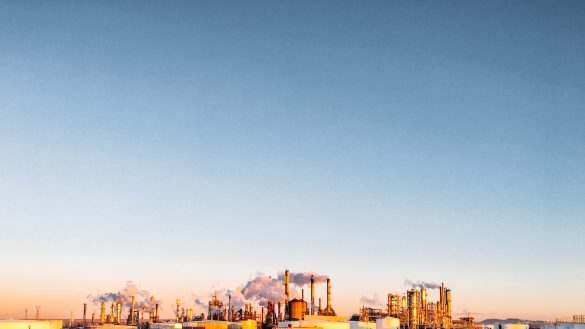Escalating drilling costs, reaching up to $30 million, hinder Nigeria’s drive to expand its gas production and tap into its natural energy for development. Fiscal barriers and disincentives stand as the main obstacles for industry operators.
According to a report by This Day Live, the Nigerian Gas Association (NGA) voiced concerns at a recent media event in Lagos. Even though authorities enacted the Petroleum Industry Act (PIA) over two years ago, industry operators still express grievances regarding fiscal challenges, regulatory discord, and operational setbacks.
Historically, Nigeria’s government has pursued several strategies to harness the nation’s rich gas resources, aiming to boost both domestic consumption and foreign exchange earnings. The government declared 2021–2030 as Nigeria’s “Decade of Gas” and rolled out significant initiatives like the Autogas Policy, the National Energy Transition Programme, and a 2060 NetZero target.
President Bola Tinubu has further championed the autogas policy by backing the rollout of compressed natural gas (CNG) vehicles. This move intends to position gas as a cleaner fuel choice and offset the impact of rising transportation costs.
However, current fiscal policies discourage companies from tapping into the expansive gas wells. Investment remains scarce despite over 206 TCF of proven gas reserves and another 600 TCF awaiting verification.
Chichi Emenike, who leads Gas Ventures at Neconde Energy Limited, highlighted the urgent need to revise the PIA’s fiscal terms to invigorate the gas sector’s investment. With her 25-year tenure in Nigeria’s oil and gas industry, Emenike highlighted the capital imperative for gas extraction and distribution.
She criticised the numerous taxes and fees imposed by regulatory entities like the Nigerian Upstream Petroleum Regulatory Commission (NUPRC) and the Nigerian Midstream and Downstream Petroleum Regulatory Authority (NMDPRA).
Emenike championed a shift to market-based gas pricing from regulated rates, pressing Nigeria to utilise its gas assets for national upliftment.
The NGA’s president, Mr. Akachukwu Nwokedi, echoed the call for prompt PIA revision. While acknowledging the PIA’s positive aspects, he identified excessive taxation and dollar-exclusive fee payments as significant barriers. Nwokedi suggested naira-based payments to ease the pressure on the Nigerian currency and emphasised the critical need to craft definitive fiscal terms to attract competitive investments in the gas sector.
In closing, the NGA remains steadfast in its advocacy for the gas sector, pushing for new investments, safeguarding industry interests, and championing a fair energy transition.



